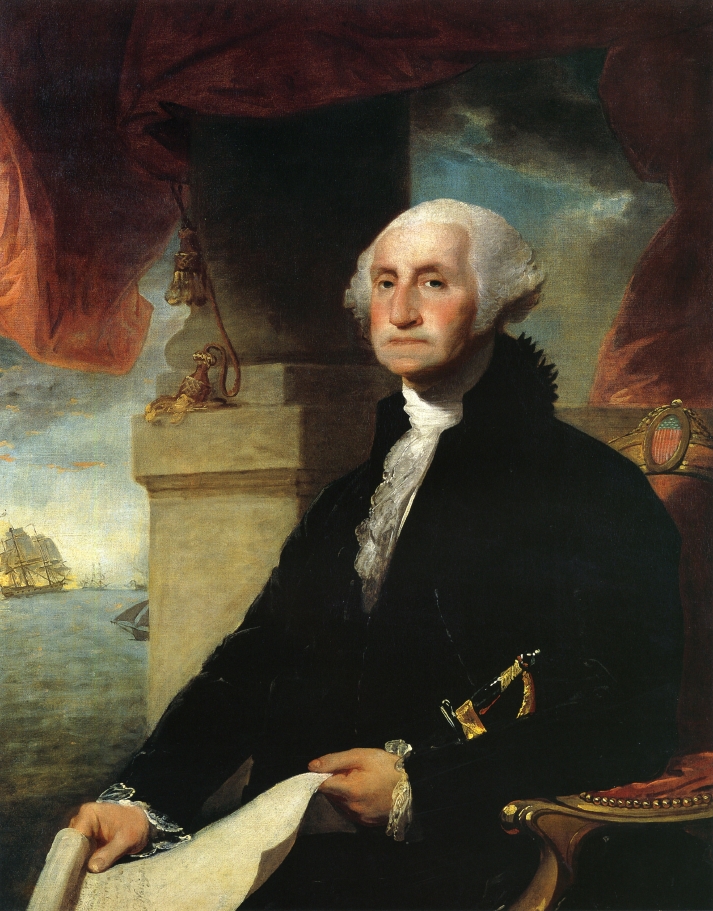 George Washington infused the American presidency with his personal dignity and restraint. That may seem a hazy contribution, but it has shaped our nation. “President” was a new title for a head of state in 1789, and no well-known republic had ever created such a strong one-man executive. America’s presidency could easily have become a sleazy office known for naked power. Such a graceless office might have degenerated into a banana republic strongman’s post. Or America might have suffered the sort of “citizen leadership” that destroyed the French Revolution, with executives relentlessly accusing and slandering each other. But no. Our first president was another sort of man.
George Washington infused the American presidency with his personal dignity and restraint. That may seem a hazy contribution, but it has shaped our nation. “President” was a new title for a head of state in 1789, and no well-known republic had ever created such a strong one-man executive. America’s presidency could easily have become a sleazy office known for naked power. Such a graceless office might have degenerated into a banana republic strongman’s post. Or America might have suffered the sort of “citizen leadership” that destroyed the French Revolution, with executives relentlessly accusing and slandering each other. But no. Our first president was another sort of man.
“A deportment so firm, so dignified, but yet so modest and composed, I have never seen in any other person,” said James Monroe of George Washington. Other contemporaries agreed, including Abigail Adams, who said: “He is polite with dignity, affable without formality, distant without haughtiness, grave without austerity, modest, wise, and good. These are traits in his character which peculiarly fit him for the exalted station he holds ….” But Washington’s dignity did more than comfort his followers. As David Brooks wrote in 2009: “Washington … came to personify what you might call the dignity code. The code was based on the same premise as the nation’s Constitution — that human beings are flawed creatures who live in constant peril of falling into disasters caused by their own passions. … The dignity code … commanded its followers to be reticent — to never degrade intimate emotions by parading them in public. It also commanded its followers to be dispassionate — to distrust rashness, zealotry, fury ….”
Washington’s example imposed the dignity code on his successors. That’s a key reason America’s presidency succeeded — so much so that republics around the world have copied it, establishing presidencies of their own. It’s also part of the reason America has enjoyed a limited executive, constrained by respect for justice and law.
Some presidents have followed Washington’s example better than others, but all have embraced the dignity code — until now. Today, President Donald Trump called a journalist “low I.Q.” and “Crazy” in public and said he refused to let her into his residence because she, “was bleeding badly from a face-lift. I said no!” The bizarre attack isn’t even true, since Trump did invite the journalist, and she wasn’t bleeding. This is just the latest in a stream of mean-spirited, crass attacks and obvious lies from President Trump. His utter lack of dignity threatens George Washington’s legacy.
Sources:
- Gilbert Stuart, George Washington (The Constable-Hamilton Portrait), 1797
- Monroe: McCullough, 1776, p. 247.
- Adams: Cot, Man of Honor, p. 102.
- Brooks, “In Search of Dignity,” The New York Times, July 6, 2009
© 2017 by David W. Tollen. All rights reserved.

0 Comments
Trackbacks/Pingbacks